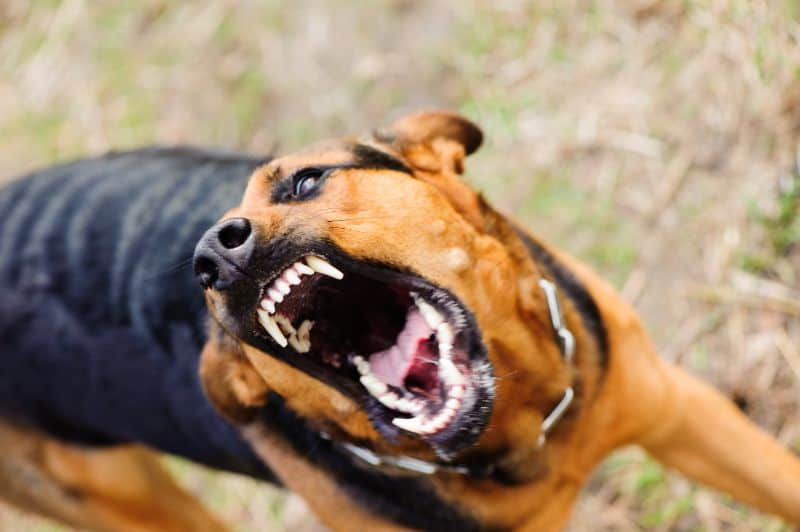Why is My Pet Acting Like That? The Reasons Behind Aggression in Pets

When a pet acts in an aggressive manner, it can be disheartening. We may ignore or forget the behavior (it was a one-off occurrence, right?) or make excuses like they came from a bad home before us, someone did something wrong, etc.
The bottom line is, when aggression in pets rears its ugly head, it’s important for us to ask why. Understanding what brings out aggression in pets is the best way to prevent bad situations in the future and avoid putting our beloved animals in an unfavorable situation.
Reasons Behind the Actions
It is easy to jump to the conclusion that an aggressive dog is just “bad.” At BEEVET Animal Hospital, we know that isn’t typically the case.
Dogs are limited to their actions and body language to communicate with us, and many times actions that appear aggressive have another reason behind them. There are three driving forces behind aggression in pets. These include:
Reactivity — Some pets react a little more intensely to certain situations. Some of this may be due to genetics or breed, as some of our domestic animals have been bred for purposes that makes this a valuable trait. Other pets have not been well-socialized to the world and may have seemingly over-the-top reactions to certain stimuli. Many times in this situation the stimuli are predictable (men in boots, being on a leash, etc.)
Defense — When a pet feels threatened or in danger, often the reaction is self-defense. A pet who is acting in an aggressive way may be trying to defend something like food, a toy, a person, or even a sunny spot on the couch. Pets who feel vulnerable may also act defensively. They may be experiencing pain or be physically unable to leave an uncomfortable situation (such as pets who are suffering from arthritis or another illness).
Real aggression — Some pets are truly aggressive. They may be trying to establish dominance over you or another animal. They may be insecure in their status within the pack or they may have a very dominant personality. While we chalk most pet aggression up to this, a larger percentage of aggressive actions are attributable to reactive or defensive behaviors.
Handling Aggression in Pets
So what are you to do when aggression in pets affects your life? Start by resisting the urge to ignore or excuse it and start to ask why. Pets whose aggression is not well-understood are at higher risk for surrender or euthanasia, and it is our goal to keep pets and humans together.
If your pet has exhibited aggressive behavior:
- Call us so that we can rule out illness, pain, or other treatable issues
- Try to identify any triggers for your pet so as to avoid them in the future
- Work with your pet on basic obedience and socialization
- Always acknowledge and reinforce good behaviors
- Avoid chaotic or high-energy situations that may set your pet up for failure such as dog parks or crowded events
- Eliminate high-value items such as treats or toys from the environment if your pet seems to be guarding resources
- Sit down with us for a behavioral evaluation so that we can help
If you feel you have a truly aggressive dog or if you are scared for your or your pet’s safety, it is time to reach out for help from us, or in many cases, a board-certified veterinary behaviorist or animal behavior professional.
Understanding aggression in pets can help us to set our beloved animals up for success and strengthen the human-animal bond. It is important to us that we accomplish this goal in as many homes as possible, and we are happy to help in any way possible.
